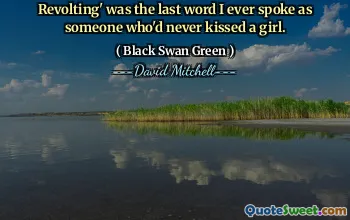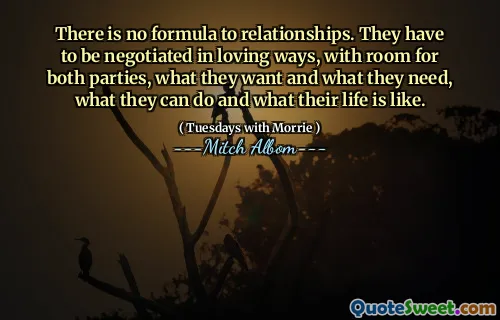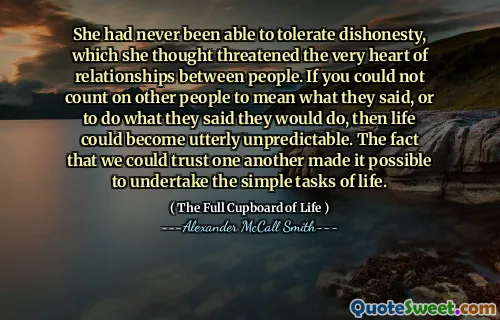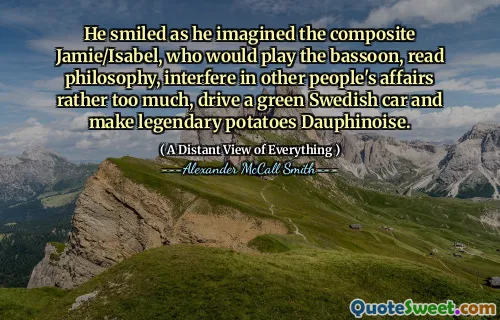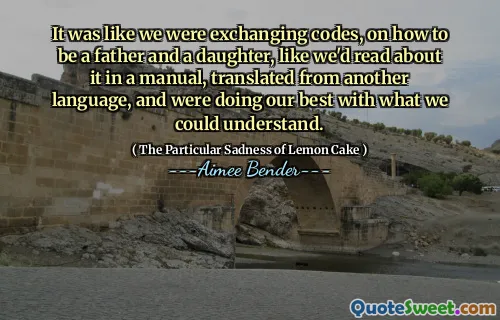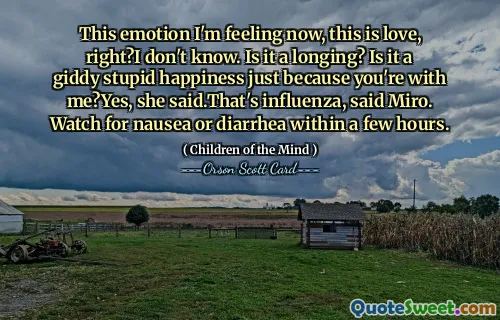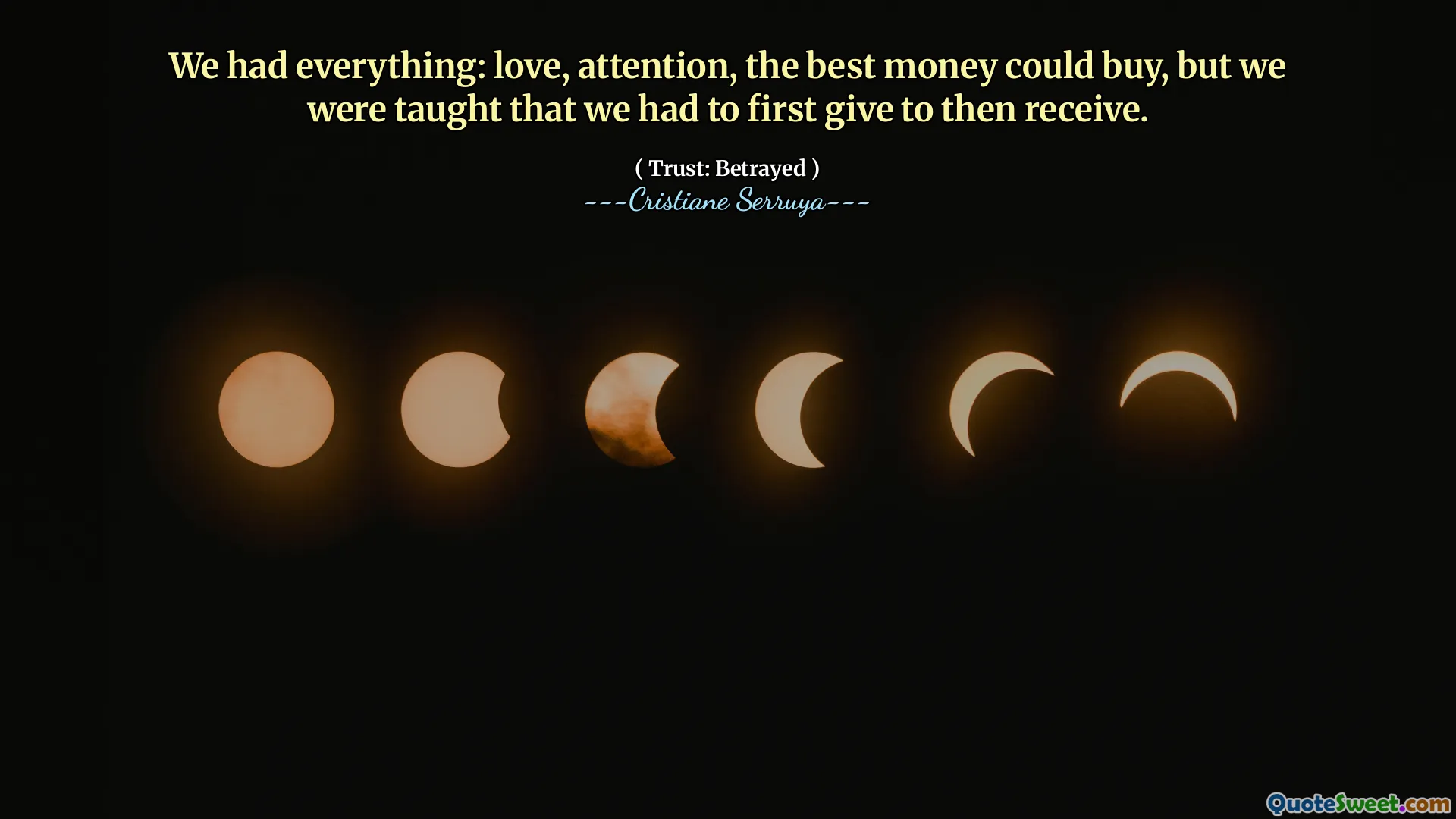
We had everything: love, attention, the best money could buy, but we were taught that we had to first give to then receive.
This quote elegantly encapsulates a fundamental truth about relationships and the flow of generosity: the principle of giving before receiving. It brings attention to the paradox of human experience where despite having material abundance and emotional warmth, one must cultivate the habit of giving to truly recognize and appreciate what is received. The mention of having "love, attention, the best money could buy" sets a scene of privilege and sufficiency, yet the underlying lesson transcends material wealth. It highlights that the value of gifts—whether emotional, material, or spiritual—grows through the conscious act of giving oneself first. This reflects a deep understanding of trust and connection; trust is not just freely given, but earned or reciprocated through acts of generosity.
Furthermore, this quote inspires reflection on how upbringing and teachings shape our interactions. Being taught that one must give first introduces the idea of proactive kindness and selflessness. It reminds me of how relationships thrive on this mutual exchange where giving is not transactional, but an intrinsic part of the bond. In essence, the quote warns against entitlement and encourages gratitude and humility, promoting a cycle where giving enriches both the giver and receiver.
From the perspective of the book 'Trust: Betrayed,' this quote may serve as a poignant reminder that trust is delicate and built through consistent giving and receiving. The process is not instantaneous but nurtured through patience and understanding. It is a powerful teaching for anyone seeking authentic connections, suggesting that the essence of trust and love lies in the willingness to give without immediate expectation, creating a foundation for receiving deeper, more meaningful returns.

